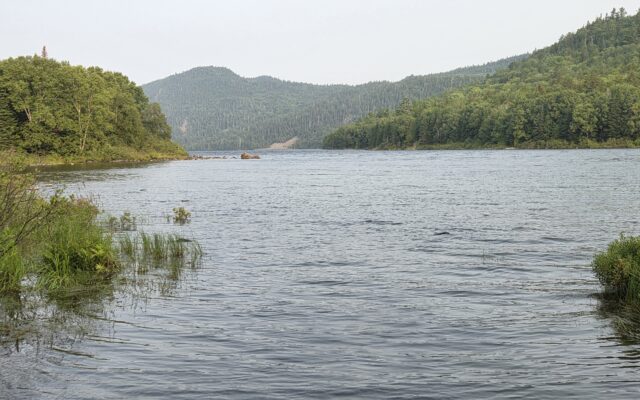
How wildfire smoke affects fishing in Maine
By Susan Bard, Bangor Daily News Outdoors Editor
For the second time this summer, wildfire smoke from Canada has rolled into Maine, creating a gray haze that dulls the usual clarity of our summer skies and sends air quality readings into unhealthy territory.
The plume of smoke arrived Saturday and has spread across much of Maine. The National Weather Service warns it may linger through Tuesday, creating some of the worst air quality conditions we’ve seen this year.
While many folks are staying indoors and perhaps postponing their morning jogs, dedicated anglers are asking a different question: should I still head out to the water?
The impact of wildfire smoke on fishing goes far beyond the obvious challenge of seeing through the smog. The latest research reveals a layered picture that every Maine angler should understand.
First, there’s what’s happening above the water. The smoke acts like a heavy shade, blocking sunlight that fish and plants depend on. This reduction in light slows photosynthesis, alters water chemistry and temperature and disrupts the food chain from its base upward.
The fine particulates in the smoke that are creating air quality issues can also settle into the water, subtly changing its chemistry and further reducing underwater light.
What may come as a surprise is that fish respond to smoky conditions, even when the fire is hundreds of miles away.
A 2021 study published in Scientific Reports examined Castle Lake in Northern California during the severe 2018 wildfire season, when smoke covered the lake for 55 days. The researchers found that both brook and rainbow trout completely disappeared from their usual shallow-water feeding areas during the smoke period, apparently moving to deeper offshore waters.
This wasn’t just about reduced visibility for anglers — the fish were reacting to shifts in light, temperature and oxygen — environmental cues signaling that conditions had changed.
While Maine’s lakes and ponds differ ecologically from Castle Lake, similar principles apply. Anglers here may notice fish moving to deeper water or becoming less active, much like they do during heavy overcast conditions due to decreased light and subtle changes in temperature and pressure.
Fish are less likely to feed actively at the surface, and aquatic insects and smaller organisms they rely on may also be affected.
So, yes, wildfire smoke clearly affects fishing through both immediate behavioral changes in fish and can contribute to degradation of aquatic habitats and water quality.
The good news is these effects from distant wildfire smoke are typically temporary and less severe than those experienced near active fire zones, where ash, debris and fire suppression chemicals can directly enter waterways and create lasting impacts on aquatic ecosystems.
Once this Canadian smoke clears by late Tuesday, conditions on Maine waters should bounce back quickly, so if you’re itching to cast a line, give it a day or two. The fish will be back, and so will the skies.